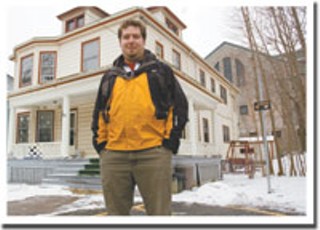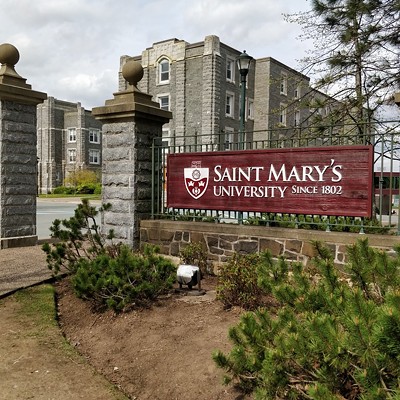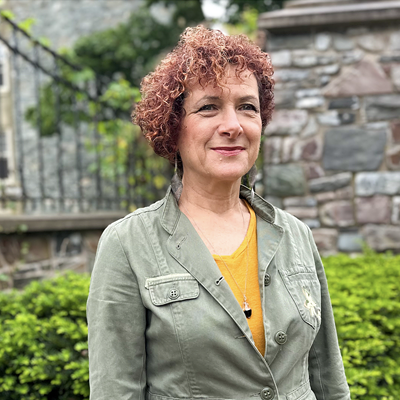Since opening in 1975, The Grad House on University Avenue has stood in contrast to its neighbour, the four-storey box that is Dalhousie’s Student Union Building. Where the SUB is practical, institutional and unfeeling, the olive-green Grad House is like a friend’s place—a friend with well-worn furniture and a fully stocked bar.
Now, the friend is moving, and the 32-year old house will likely disappear. Dal wants to move the campus bar and hang-out across the street to make way for a 65,000-square foot extension to the SUB, which would see the building extended to Le Marchant Street.
It’s just one of the projects that Dal will be asking students to approve in an online referendum, which will be held on March 6 and 7 via the Dalhousie Student Union’s website.
Other major projects would include a 15,000-square foot expansion to the Life Sciences Centre (the exact location has yet to be determined) and a new, two-storey, 10,000-square foot studio on Morris Street, which would provide hands-on workshop space for engineering and architecture students. The referendum will also address seven other renovation proposals, designed to improve existing student space on campus.
“We need additional social space for students to meet, hang out, engage in the informal experience that is a big part of life at Dalhousie, but also to work on projects, and have study space,” says Tom Traves, president of Dalhousie University. The university’s proposals are still rough—there are no specific designs. Traves envisions students having a hand in the design of the new spaces.
There are signs that the administration is listening. When word got out about the proposed demolition of the Grad House, some students protested. The Dalhousie Association of Graduate Students, which runs the bar, requested an alternate site for the Grad House.
“Originally, they weren’t going to replace it,” says DAGS president Yannick Tremblay, “but we sent a note expressing our concern, and he offered us a house”—specifically, another University-owned house, at 1252-1254 Le Marchant Street.
But Dal isn’t simply looking for inspiration from students; they’re also looking for money. All told, the university would need roughly $25 million to pay for the upgrades. They’re asking students to take on an auxiliary fee of $10 per course, to a maximum of 10 courses per year, to finance the project.
“At the moment, the university doesn’t have $25 million to do this. But we think this is an urgent requirement,” says Traves. “If the students approve the referendum, we can start the project right away rather than waiting however long it may take to fundraise that money.”
Dal is allowing all students who are represented by the DSU to participate, which leaves some people out of the discussion. Students at the University of King’s College, for example, would have to pay the additional fees, though they can’t participate in the referendum.
“We’d certainly appreciate their input, should we move forward,” says Traves. “But there’s an apt parallel here with people living in a foreign country—you can work in another country, but if you’re not a citizen of that country, you can’t vote.”
Should the projects be approved, the design process would commence this summer, with projects to be completed by summer 2009—that’s also when students would begin paying any extra fees. If the students say no, “then, simply, we won’t proceed,” says Traves.
The Dalhousie Student Union hasn’t officially come out for or against the plan, but DSU president Ezra Edelstein says there has been extensive discussion at council.
“There is a definite need for more student space on this campus,” he says, “and I do believe that there is a genuine wish on the part of the administration that students are consulted. One commitment they made is that there will be an equal number of student representatives on these planning committees as from university administration.”
There is some question about whether or not the students should be on the hook for cash above and beyond their standard tuition fees, to finance these kind of renovations.
“Students shouldn’t be paying to fix the steam pipes underneath University Avenue,” says Edelstein. “The onus for that type of work should be on the government. But here, we’re talking about expanding student space more than deferred maintenance.”











